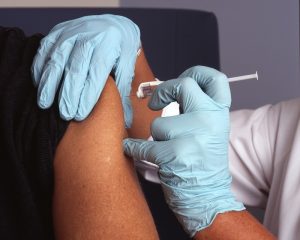The latest special issue of the Journal of the American Heart Association showcases the remarkable progress made by ongoing research projects aimed at revolutionizing heart and brain health globally. These initiatives, funded with over $14 million in scientific grants through the American Heart Association’s Strategically Focused Health Technologies and Innovation Research Network in 2020, are harnessing digital technology to create scalable and engaging solutions. The goal is to bridge gaps in healthcare, ensuring the inclusivity, relevance, and ease of use of technological solutions for people across the socioeconomic spectrum.
Research Highlights:
- Quantifying Induced Nystagmus Using a Smartphone Eye Tracking Application (EyePhone) – The Johns Hopkins University School of Medicine led a project developing “EyePhone,” a smartphone application to aid in stroke diagnosis. The technology demonstrated accuracy comparable to standard devices, offering a non-invasive and accessible solution for detecting stroke symptoms.
- Acceptability of a Text Message-Based Mobile Health Intervention – The University of Michigan explored ways to enhance communication and motivation for individuals undergoing cardiac rehabilitation. The study found that a mobile text message-based intervention was well-received but suggested the need for more personalization and clinical support to maximize effectiveness.
- Comparing Cognitive Tests and Smartphone-Based Assessment – Tulane University investigated the use of smartphone-based cognitive assessments to identify dementia, finding that the app performed similarly to traditional tests. This supports the potential for smartphone-based assessments to facilitate cognitive screening for Alzheimer’s disease across diverse populations.
- Deployment of Point-of-care Echocardiography among American Indians – Researchers at Cincinnati Children’s Hospital developed a point-of-care approach to echocardiography, improving access to cardiac screening for American Indian populations in remote settings. The study showed that clinicians unfamiliar with echocardiography could be successfully trained to provide point-of-care screening echocardiograms.
- Utilizing Artificial Intelligence for Rheumatic Heart Disease Detection – Children’s National Hospital in Washington, DC, investigated the use of machine learning to detect and analyze mitral regurgitation for early detection of rheumatic heart disease. The findings suggest that AI has the potential to detect rheumatic heart disease as accurately as expert cardiologists, increasing access to echocardiography screening.
- Resource Requirements for Participant Enrollment in a Mobile Health Study – Researchers at Northwestern University explored the resources needed to overcome barriers in enrolling racially and economically diverse participants in a study focusing on mobile health intervention for high blood pressure. The study highlighted the importance of tailored recruitment approaches, including text messages and additional staffing.
- Patient Representativeness with Virtual Enrollment in the PRO-HF Trial – Stanford University investigated virtual enrollment methods for heart failure trials, finding that virtual clinical trials enable efficient enrollment of diverse populations. The study emphasized the need for multiple recruitment avenues to achieve diverse representation in clinical trials.
As the first published collection of work from the Strategically Focused Health Technologies and Innovation Research Network, these breakthroughs demonstrate the transformative potential of digital technology in healthcare. The diverse range of projects addresses critical issues in heart and brain health, showcasing innovative solutions that have the potential to revolutionize patient care globally. The American Heart Association’s continued investment in research networks underscores its commitment to advancing cardiovascular health and stroke prevention through cutting-edge technology and interdisciplinary collaboration. While the long-term impact and commercial applications are yet to be fully realized, early successes, such as the creation of a digital startup by Johns Hopkins University, indicate promising prospects for sustained and scalable solutions beyond the funding period.









